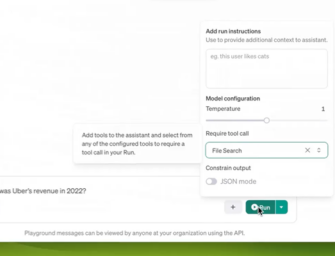More Than Half of Consumers Want to Use Voice Assistants for Healthcare – New Report from Voicebot and Orbita
- 7.5% of U.S. consumers have used voice assistants such as Alexa or Google Assistant for healthcare as of September 2019
- Nearly 52% would like to use voice assistants for healthcare use cases in the future
- 18-29 year-olds are the most likely to have used a voice assistant for healthcare-related services but 45-60 year-olds are the most bullish on the technology
- New report on voice assistant adoption in healthcare includes 18 charts, 10 use cases available today, and 35 pages of analysis
More than half of U.S. consumers want to employ voice assistants for healthcare-related use cases according to a new survey conducted by Voicebot and Orbita. The survey of 1,004 U.S. adults found that while only 1-in-13 had already used a voice assistant for a healthcare use case to date, about 52% are interested in doing so in the future.

This is one of the findings of the Voice Assistant Consumer Adoption Report for Healthcare 2019 which published today. The report includes 18 charts, numerous other data points, and over 30-pages of analysis. Data includes both general adoption figures for voice assistants through smartphones, smart speakers, and in the car as well as specific information on how the services are and will be used in healthcare. Ten current deployments of voice assistant use cases in healthcare are also reviewed in detail.
Download ReportIt’s Not a Youth Movement
It will surprise few people that 18-29 year-olds were the most likely to have used a voice assistant for a healthcare-related need. While 7.5% of consumers have used a voice assistant for healthcare in some way, the youngest adults have done so at a rate of 9.1%. That is 50% more than the over 60 age group and would seem to indicate a familiar pattern of technology adoption by age cohort. However, these differences narrow as consumers indicate their interest in using voice assistants for healthcare needs in the future. The eldest consumers in our survey were only 15% less likely to express interest than the youth cohort.

In addition, the most interested age group for using voice assistants for healthcare in the future is the 45-60 year-olds. Both 45-60 (54.5%) and 18-29 (52.8%) age groups exceeded the 51.9% average but the core GenX and late Baby Boomer crowd are keenly interested in applying this new technology to their health and wellness needs. This result may reflect the older group’s relative tech-savviness combined with a rising need for age-related healthcare services.
Download the Free Report
The Voice Assistant Consumer Adoption Report for Healthcare 2019 was developed through a collaboration between Voicebot and Orbita. It is free to download. Sections of the report include:
- Introduction – compares voice assistant use in healthcare to more mature use cases such as media, communications, and search
- Consumer Voice Assistant Adoption – reviews latest data on voice assistant use across smartphones, automobiles, and smart speakers
- Consumer Voice Assistant Use for Healthcare – analyzes current and desired use cases as well as a demographic breakdown of users and how privacy concerns could impact adoption
- Voice Technology Use Cases in Healthcare – reviews 10 current use cases of voice assistants in healthcare and includes examples from American Red Cross, Atrium Health, Mayo Clinic and others.
- Healthcare and Leading Voice Platforms – assesses the current status of Amazon Alexa, Apple Siri, Google Assistant, and Samsung Bixby in their ability to support healthcare use cases
We hope the report helps shed new light on the intersection of voice assistant technology and healthcare. Let us know what you think on Twitter and if you have any questions.
Follow @bretkinsella Follow @voicebotai
New Data on Voice Assistant SEO is a Wake-up Call for Brands
Bill Cava Co-founder of Orbita Talks Voice and Healthcare – Voicebot Podcast Ep 65









